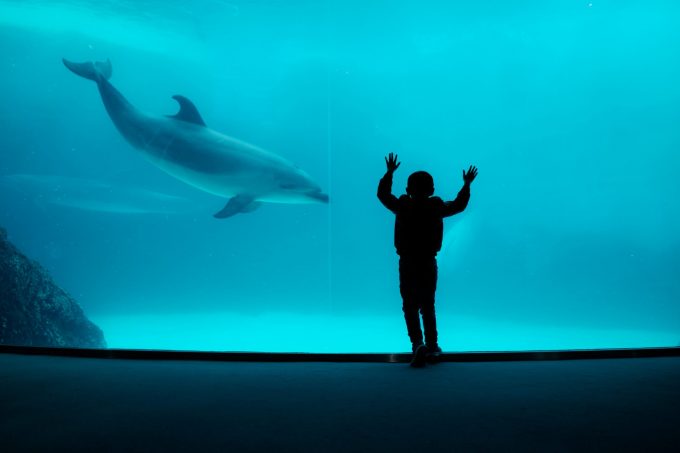The recent uproar over Australia’s live sheep trade to the Middle East shows that people care about the treatment of animals.
Teachers who are interested in exploring the ethics and law behind the treatment of animals may be interested in a new program developed by independent, non-profit think-tank Voiceless.
Voiceless, which pioneered animal law education in Australia, has released its first education program for high school students, ‘Dolphins in Captivity’, with resources developed to run alongside Australian Curriculum-aligned activities in geography, English, science, history, civics and citizenship, and the arts.
Ondine Sherman, the co-founder and managing director of Voiceless, said the Animal Protection Education (APE) programs introduced students to a wide range of issues and concepts by encouraging research, discussion and debate.
The APEs investigate key animal protection issues and ethical and legal concepts through a suite of high-quality resources including videos, podcasts, fact sheets and infographics, as well as classroom activities which are linked with the Australian Curriculum.
“This approach encourages students to think critically about the future of dolphin captivity, providing them with all of the information they need to develop an informed position on the issue,” said Ms Sherman.
“Resources, including interviews with scientists, lawyers and advocates, introduce students to some of the key issues raised by holding dolphins in marine parks, aquariums and research facilities around the world, encouraging students to consider the arguments both ‘for’ and ‘against’ keeping dolphins in captivity,” she said.
- For: Some people argue that it is necessary to keep certain species of dolphin in captivity to act as an insurance population in the event that they become extinct in the wild.
- For: Dolphin captivity is sometimes justified on the grounds that it enables people to learn about dolphins, which can help to support dolphin conservation in the wild.
- For: Some people argue that dolphin captivity for research purposes is important for the study of dolphin biology to enable us to understand how to protect them from disease and conserve them in the wild.
- Against: Some people argue that it is unnecessary to keep dolphins in captivity for conservation purposes, as the most common dolphin held in captivity is the bottlenose dolphin which is a species of ‘Least Concern’ under the IUCN Red List of Threatened Species.
- Against: Some people argue that keeping dolphins in captivity in order to enable people to learn about them is unnecessary, as they can be studied in the wild and captivity may induce atypical behaviours.
- Against: Some people argue that keeping dolphins in captivity is problematic, as artificial manmade environments are not capable of fully replicating their natural ocean environment, and their welfare may be significantly compromised in these environments.
“There are at least 2000 individual dolphins currently held in captivity, in approximately 63 countries including Australia. A number of countries have banned dolphin captivity, recognising the impacts it can have on the welfare of dolphins,” she said.
Ms Sherman said: “Our APEs are created by educators for educators and are very easy for teachers to use in the classroom.”
Other Voiceless APEs in production include Factory Farming, which will promote debate and discussion about the pig, broiler chicken, battery hen and dairy industry; Legal Personhood for animals, with resources based on the ground-breaking work of the Nonhuman Rights Project; welfare issues faced by fish; and the commercial killing of kangaroos. Nobel Prize-winning author (and Voiceless Patron), JM Coetzee’s novella, The Lives of Animals will also form the foundation of an upcoming APE.
About Voiceless
Voiceless, the animal protection institute, is an independent non-profit think-tank working to promote respect and compassion for animals. The institute is responsible for pioneering animal law as a discipline at Australian universities, creating the first textbooks and academic journal, as well as the proliferation of legal publications and analysis, contributing to animal law courses having now been offered at 15 law schools around the country.
Explore our latest issue...








